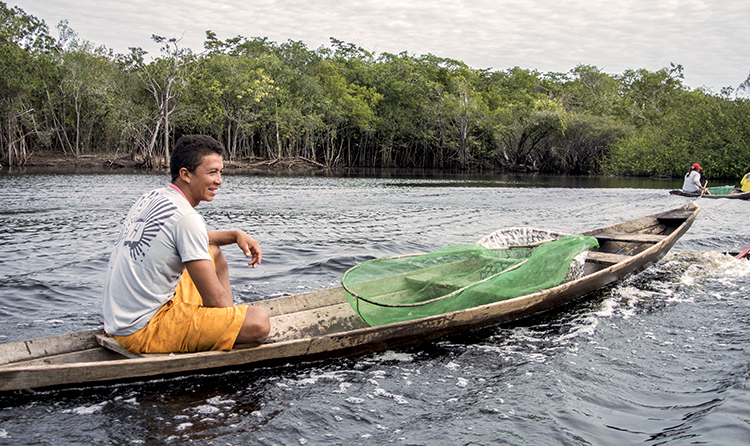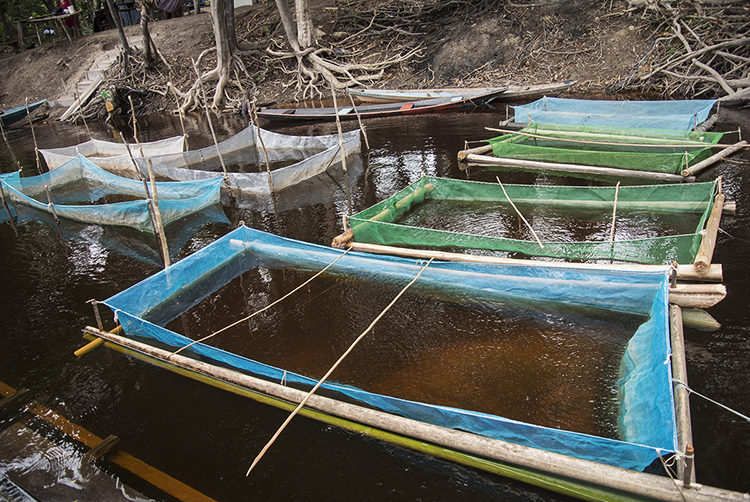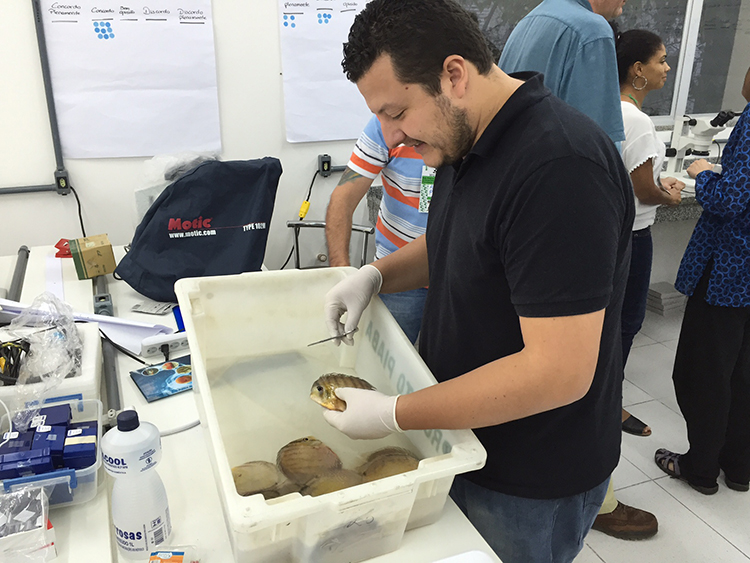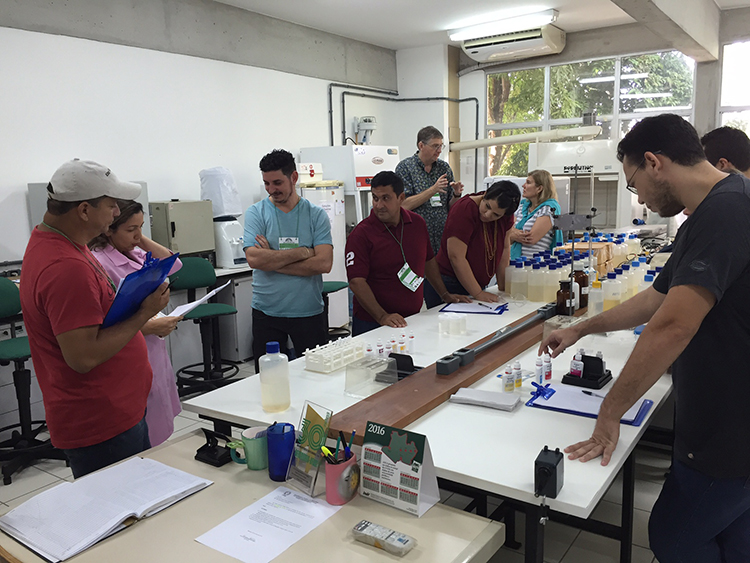As part of its mission to improve and promote the aquarium fishery based along Brazil’s Rio Negro, nonprofit organization Project Piaba held a “train the trainers” workshop in Manaus, Amazonas State, Brazil this week.
The workshop saw an international team of experts—including fish veterinarians, fisheries experts, and educators—assembled in the main export hub for Rio Negro aquarium fish to present a week-long intensive course. Funded largely by a generous grant from the World Pet Association (a major industry group), the program is just one facet of Project Piaba’s long-term plan to improve the quality of fish from the region and help keep the fishery viable despite recent decline. The Rio Negro is among the best-studied aquarium fisheries on the planet, and provides largely sustainable livelihoods for thousands throughout the region while helping to preserve both aquatic ecosystems and the pristine forests that surround them.
The workshop covered a wide array of topics, from proper fish handling to water quality management, each designed to help improve the conditions these wild collected fish face before being exported to countries like the US. The curriculum was based on a set of Best Handling Practices (BHP’s) developed by fish health and industry experts through years of observing the supply chain for Rio Negro aquarium fish. The long-term goal is to teach best practices at each individual step of the supply chain—from fish collectors to export facilities—which will greatly improve the quality and health of the fish when they reach importers, retailers, and hobbyists.
This training program was not intended to improve the fishery directly, however; rather, it is part of a “train the trainer” approach which will provide ongoing support and improvements in the field over a longer time frame. This strategy involves providing intensive training for local stakeholders who will then go on and hold workshops at various spots along the supply chain for fishers, fish transporters/middlemen, and others involved in getting live aquarium fish to export facilities in Manaus. This approach ensures a much higher likelihood of success, as it allows future workshops to be held directly in fishing villages and camps, in fishers’ native language, and using culturally appropriate examples and teaching methods.
Workshop participants—many of which will form the Project Piaba “ground team” based in Manaus and Barcelos—were primarily composed of people with a lifelong connection to the region’s aquarium fishery. These included fish collectors (and former fishers), exporters, fisheries scientists, government officials, and students from the Federal University of Amazonas in Manaus, all of whom received an invaluable hands-on learning experience during the course of the training.
After several years of planning for this workshop, it represents a distinct milestone in Project Piaba’s history and hopefully a turning point in preserving the unique aquarium fishery in Brazilian Amazonas. The training sessions are just now concluding and the team of experts and educators will be making their way back home shortly so look for an update on the workshop and Project Piaba’s ongoing work in the Rio Negro soon!
Project Piaba is a registered non-profit whose mission is to to increase the environmental, animal welfare, and social sustainability of the Amazonian aquarium fish trade, to develop and incorporate metrics through which this progress can be assessed, and to provide mechanisms to promote this industry.
Check out their website, www.ProjectPiaba.org or follow Project Piaba on Facebook for updates









